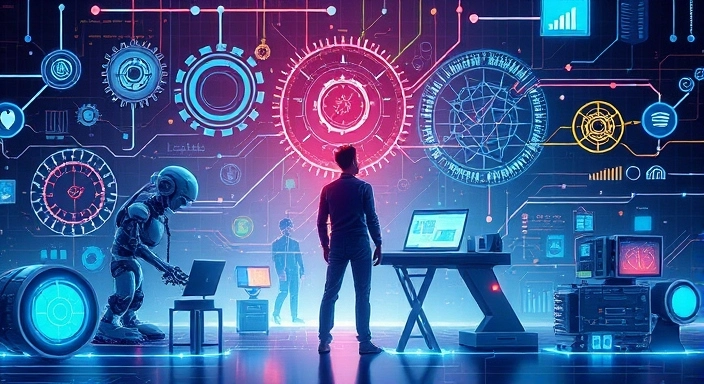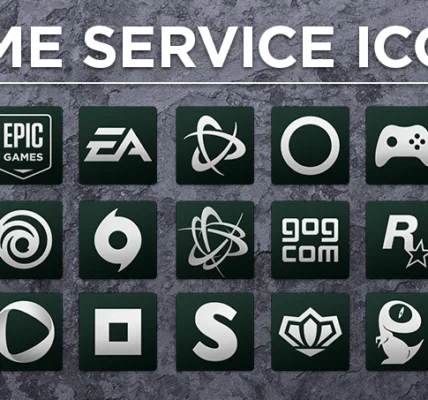All through the years, this perfect harmony of technological innovation and human ingenuity paved the way for the betterment of humankind as they advanced through their lives. From the invention of the wheel to the discovery of artificial intelligence, it was this perfect marriage that paved the way toward unparalleled improvement in the life of humans, which transformed work, the way to live, and how to live to interact with the world. Together, they complement each other and present solutions to even the most complex problems in science, medicine, and communication, among others.
This paper explores how technological innovations begin with human imagination, criticizes their transformative effects across other sectors, and hints at the challenges that come along with them.
The Birth of Technological Innovation Human Ingenuity
All innovation in technology first finds its roots as an innovation in the human brain. This is the identification of need, and then one searches to fill that need. Discoveries in history are due to people—inventing scientists and thinkers—applying their brain powers to perceived needs.
Human-Centered Innovation Examples
The Internet has had a birth inspired by a perceived need for making it easy to get the knowledge through.
This has come about in response to the necessity of mitigating the impact of climate change.
The inventions represent a culmination of human ingenuity as the sole determinant of technological development over the years and how this has shaped human history.
Exponential Growth in the Modern Era
This marked the dawn of new technologies in the 21st century, new frontiers, and pushing boundaries to their limits. Some of the examples that can be seen today to demonstrate exponential growth include artificial intelligence, machine learning, and automation.
• Artificial Intelligence and Machine Learning:
Machines can, with AI and machine learning, understand data and learn processes and even problems at speeds and scales that were unimaginable compared to even just decades ago.
• Automation:
Automation makes complex tasks simple, thus increasing efficiency in different industries. However, at every design and implementation stage, such systems are always subordinate to human creativity.
Human ingenuity takes center stage, especially in ethical considerations and subtle decision-making.
Healthcare Technology Innovation
Most profoundly, this collaboration is very conspicuous in healthcare. Healthcare technologies have revolutionized diagnostics and treatment in medical care, thus improving patient outcomes and saving lives.
- Robotic Surgery:
With advancements such as robotic-assisted surgery, precision that had proven impossible is now very attainable, thus enhancing a shorter recovery time while maximizing patient outcomes. - Wearable Technology:
Devices that monitor real-time patient health empower people to manage their own health and arm doctors with data-driven decisions. - Precision Medicine:
By using artificial intelligence and big data, precision medicine tailors treatment to the individual patient, redefining how healthcare traditionally was approached.
The incredible speed with which the COVID-19 vaccines are being produced shows how together, humanity and technology can look for solutions for any situation the world might be undergoing.
Transforming Education Through Technology
Just like in any other department, human ingenuity and technological development have taken the education department to great heights.
Virtual Learning Environment
Online courses and management systems make educational facilities reachable to students from the entire globe.
Learning through Augmented Reality
AR-based technologies make abstract concepts come alive through immersive learning experiences.
AI-Powered Tutors:
AI tutors for individual students tailor learning according to the needs of the individual students, thereby creating a personalized experience.
These changes have revolutionized the way information is conveyed and absorbed and how it makes learning easier, engaging, and relevant.
Ethical Issues by Technological Innovations
Technological innovations have many benefits to humankind, but the ethical as well as social issues tagged to them are far more.
1. Right of Privacy
Digital technology and systems on data have increased remarkably; it has also spawned many problems of privacy along with information security. To establish a balance between this new innovation and humans’ individual rights, there need to be just and ethical solutions.
2. Dislocation from Employment
Automation and AI are an existential threat to displace jobs, especially those requiring repetitive tasks. It invents new jobs but asks the workforce to be reskilled by humans, a job requiring human foresight and planning.
3. Digital Inequality
The unequal use of technology increases inequality because of a digital divide in access to resources and means for technological development. However, a step toward innovation is the reduction of these inequalities to benefit global progress better.
Human ingenuity has a very important role to play in dealing with all these issues so that the advancement of technology will be able to benefit all humankind.
Role of Human Ingenuity in the Ethical Development of Technology
Human ingenuity is not about creation but the direction that technology development and application take toward human values.
• Ethical AI Development:
Ethical elements must be inculcated into the AI systems that are just, transparent, and answerable.
• Sustainable Innovation:
Technology that gives minimal footprint on the environment is a reflection of human responsibility to future generations.
• Inclusivity:
With diversity in needs and opinions, the development of technology is diverse, so that innovation always serves everyone.
This stewardship ethic reminds one that no amount of technology will ever replace human ingenuity and morality in deciding the future of technology.
Future of Technological Innovation and Human Ingenuity
- The Future Glimpse: Technological Innovation and Human Ingenuity As the world moves forward, this change continues. New fields such as quantum computing, biotechnology, and even space exploration hold much promise, though they are fraught with careful navigation.
- Quantum Computing: This would transform problem-solving in numerous fields, but the prospect of its misuse calls for very sound ethical boundaries.
- Biotechnology: This development and discovery of gene editing or synthetic biology would have seen all areas in health and agriculture significantly changed, but they sure open terrible lines regarding ethical issues.
- Space Exploration: Human ingenuity drives our efforts for other planets and then settlement on those. What would follow that depends upon how humankind could apply the technology responsibly towards good.
Conclusion
This is proof of human development where relentless progress has been witnessed it over time. All of them and man’s ingenuity have transformed life in every aspect: life in healthcare and education, in communication, and beyond.
This notwithstanding, however, this synergy is not flawless. For example, issues like loss of privacy and job loss and the issue of digital inequality remind man’s ingenuity to guide technological advancement responsibly and ethically.
This will unleash human potential, deal with global challenges, and bring in a brighter future as we step into this increasingly complicated world. Human beings can continue to shape an innovative world, where innovation is used as a tool for progress and prosperity, with the fusing of creativity, empathy, and technological power.
Read Also: How Did GPS Technology Change The Trucking Industry?
FAQs: Technological Innovation and Human Ingenuity
Human ingenuity identifies the problems and designs innovative solutions, providing a ground for technological innovations. Behind the innovative breakthroughs lie the imagination and intuition of the inventors, scientists, and thinkers.
No, since technology can only supplement human ingenuity AI and automation will still need to be supported by human creativity, ethical thinking, and judgment in its conceptualization and usage.
Examples include technologies that help ingenuity. Among those are the internet through global collaboration, precision medicine using artificial intelligence in healthcare, and virtual learning platforms that changed education to more technological innovations that amplify human creativity.
The problems are privacy concerns, displacement due to mechanization, and digital inequalities. All of these demand human ingenuity in guiding technology development in a responsible and fair manners.
Ethical technology development involves human values being inbuilt in design processes whereby developments become sustainable, inclusive, and transparent. This best approach through technological opportunities to care about societal welfare is to prioritize endeavors.





